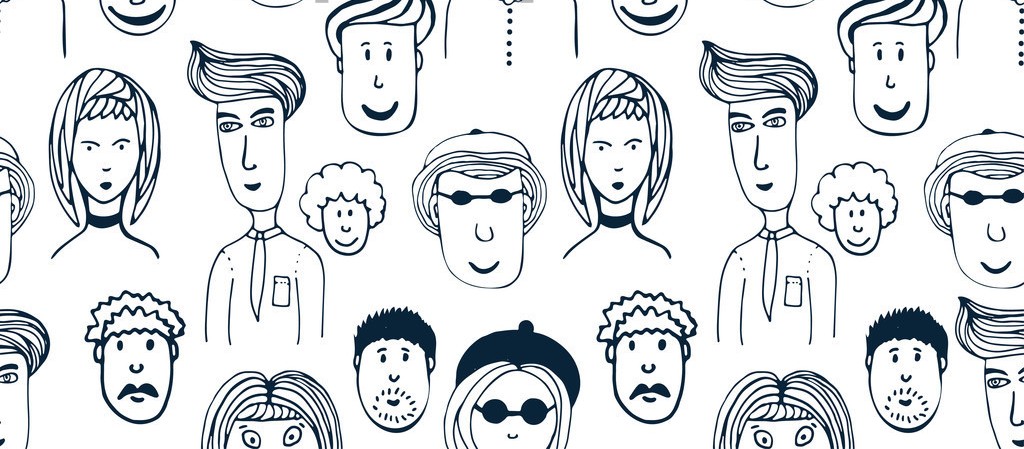I’ve just come back from a summer Euro-trip (it was lovely, thanks for asking!)
During the trip, we visited around 10 ‘locations’, staying in b’n’b’s and hotels, eating in restaurants, drinking in bars, and visiting various attractions. Each time, before arriving in town, we’d swotted up on the local scene, reliably informed by those who’d been there before us.
Where once I used to get this valuable information from Lonely Planet (or went without), now when on holiday I use TripAdvisor, and it’s millions of crowdsourced reviews. It’s my first-stop, helping plan where to find the very best experiences. If something’s got less than a 4* average, it’s off my list – why would I waste my time and money?
But of course, it’s not just on my holiday that online reviews have transformed purchasing. I, and pretty much everyone else, now use online reviews day in, day out to help decide what to buy.
Stars in our eyes: Are we addicted to reviewing stuff?

Brands can advertise on TV, in print and online all they like. Maybe from time to time they’ll nudge me to buy something, but on the whole I know their motives and ignore their base pleading.
In reality, us consumers are a savvy bunch. We know that personal recommendations are what count, which is why ‘word of mouth’ is frequently cited as the no.1 decision factor when making a purchase, particularly an important one.
Now, though, a staggering 88% of us trust online reviews “as much as a personal recommendation.” That’s a massive shift.
Try as they have done, never before has a mass media tool (the internet) been able to replicate the kind of persuasiveness wielded by ‘your mate down the pub’. But now, online review platforms have opened a new frontier.
Yes, we as consumers love the reviews, but make no mistake: many brands love this newfound power too – a power they don’t control, but can much more easily harness.
In fact, here in the UK, you could argue that we’ve become addicted to reviewing, fuelled by the big business these platforms have become.
We review… hotels, restaurants, attractions (TripAdvisor, Yelp!), products and shopkeepers (Amazon, Ebay), apps (Play Store, App Store), apartments and hosts (AirB’N’B), cab drivers (Uber), TakeAways (JustEat, Hungry House) builders (Checkatrade), movies and TV (Rotten Tomatoes), romantic partners (Lulu), and seemingly everything else, wherever you happen to go (Google Maps.)
As a customer, no longer does it feel acceptable to “use-and-go”. Apps, services and online shops bombard their customers with invitations to review, knowing full well the power this could bring them.
Detractors talk of low quality, poor security and adverse effects, but…
The detractors of online reviews are many. They argue: that crowdsourced reviews can never replace the value of trained, highly-informed professional reviewers; that customers with an axe to grind are far more likely to share their 2 cents than those who were boringly ‘satisfied’ (which, to be fair, is true); and that small businesses can be unfairly hit by just a handful of minor customer gripes.
Yet they’re fighting against a seemingly-unassailable torrent of stars ratings. The big platforms do claim to be doing their bit to answer all critics’ issues, but regardless, we’re clearly already addicted!
“Ratings are forging new power structures”

As this Guardian Technology. article describes it, “ratings are forging new power structures”. Where once there was ‘trust’ or simply a ‘lack of information’, we now face up to decisions armed with aggregated reviews from a mass of fellow consumers.
As a marketer, it seems a fascinating change. I found the concept of the ‘influence mix’ helpful in describing the phenomenon. (It’s a concept from called Absolute Value, which argues that the internet is helping us move towards a world with near perfect information.)
The influence mix defines 3 factors that affect consumer buying choices:
- Prior preferences, beliefs, and experiences (P).
- Information from marketers, such as packaging, pricing, and advertising (M).
- Input from other people, such as friends, family, and peers (O).
Proliferation of online reviews has caused an ‘influence revolution’, the rise of the O. Brands who formerly hammered consumers with M, and relied on their customers’ strong sense of P are now finding that O can blow them and their complacency out of the water.
O has allowed start-up challengers to steal market share, forced brands to shake-up their strategy and utterly transformed the way in which new products and services are taken to market.
At work, Malcom Gladwell’s concept of influencers (which I wrote about a few months back) comes to mind daily. I find it satisfying to think that pleasing a few ‘key’, outspoken individuals can have an oversized, positive impact.
Marketing to consumers isn’t necessarily about big M exposure any more, it’s heavily concerned with catalysing positive sentiment by ensuring that existing customers get services that’s good enough to shout about. In short, it’s about maximising O.
And, far from peaking, I believe there’s a heck of a lot more O on the way…
What’s next? My humble predictions for the world of online reviewing
- First up, I believe that the quantity of reviews, saturation of every possible product / service niche, and our overall reliance on crowdsourced reviews as decision informer has a LOT of growth left. Competition from early entrants has been fierce (think of all the Hotel sites, for example), so hopefully that’ll die down as winners emerge, but there are all sorts of areas far from fully explored.
- Quality of products and services is what reviews are all about. As our focus naturally shifts more and more to quality, as evidenced by crowdsourced reviews, businesses will be forced to invest more heavily in the core quality of what they’re selling. Where’s the down-side in that?!
- OK, so there are concerns being raised about the rating of individuals. Could your livelihood be jeopardised by a series of unfortunate bad reviews that push your rating below the consumer radar? Sole traders like Uber drivers have already begun to feel the brunt of reviews which can adversely affect individuals’ lives. Debates will no doubt rage – but at least, unlike app-fuelled price-wars, the net effect should be increasing quality (rather than lowering price.)
- Fed up of being told what to do by the masses, rebellious trend-setters might invent ‘going off-review’ – just choosing to buy on the basis of instinct. It’ll be seen as daring and adventurous, for those with nothing to lose.
- Above all, online reviews will continue to level the playing field, opening all kinds of markets to new challengers who could never before challenge the big boys and their advertising budgets. Anyone who truly can do better will be given the space to succeed.
…oh, that’s as long as someone can stamp out all the fake reviews that still blight this whole endeavour. Amazon recently sued a load of their creators.
(Like this post? Leave me a review, or tell the world how you’d rate it on social media!)
Main image: Showaround, an app that connects visitors with local guides – and yes, you can rate each other!



